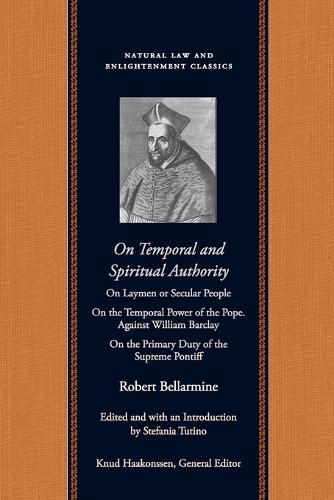Readings Newsletter
Become a Readings Member to make your shopping experience even easier.
Sign in or sign up for free!
You’re not far away from qualifying for FREE standard shipping within Australia
You’ve qualified for FREE standard shipping within Australia
The cart is loading…






Robert Bellarmine was one of the most original and influential political theorists of his time. He participated in several of the political debates that agitated early modern Europe, such as the controversy over the Oath of Allegiance in England. Bellarmine presents one of the clearest and most coherent definitions of the nature and aim of temporal authority and its relationship to spiritual authority. The king has jurisdiction over the body, the pope over the conscience. This distinction was crucial for the history of early modern monarchies: the conflict between state and church ceased to be concerned with physical persons and become a contest for the consciences of subjects. The political thought of Bellarmine was at the center of post-Reformation debates on the relationship between state and church; on the nature, aim, and limits of temporal government; and on the relation between religion and natural law. He posed in a novel, controversial manner the relationship between public and private spheres, thus opening up questions central to what we consider ‘modernity’. This accessible edition of some of Ballarmine’s most important works in fresh translations will be interesting for a wide readership of both scholars of political thought and the educated general public.
$9.00 standard shipping within Australia
FREE standard shipping within Australia for orders over $100.00
Express & International shipping calculated at checkout
Robert Bellarmine was one of the most original and influential political theorists of his time. He participated in several of the political debates that agitated early modern Europe, such as the controversy over the Oath of Allegiance in England. Bellarmine presents one of the clearest and most coherent definitions of the nature and aim of temporal authority and its relationship to spiritual authority. The king has jurisdiction over the body, the pope over the conscience. This distinction was crucial for the history of early modern monarchies: the conflict between state and church ceased to be concerned with physical persons and become a contest for the consciences of subjects. The political thought of Bellarmine was at the center of post-Reformation debates on the relationship between state and church; on the nature, aim, and limits of temporal government; and on the relation between religion and natural law. He posed in a novel, controversial manner the relationship between public and private spheres, thus opening up questions central to what we consider ‘modernity’. This accessible edition of some of Ballarmine’s most important works in fresh translations will be interesting for a wide readership of both scholars of political thought and the educated general public.